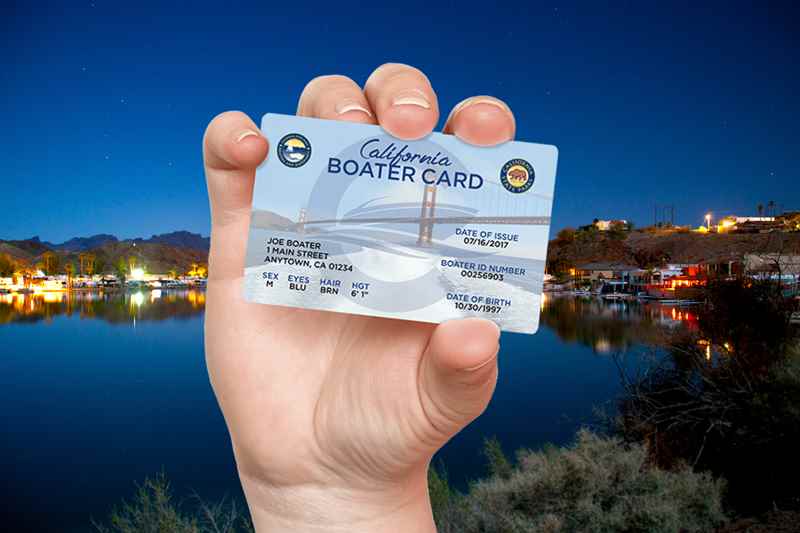Do you need a license to drive a boat?
Have you ever wondered why do you need a license to drive a boat? It’s not as crucial as a car’s license but it’s not just a formal piece of documentation; it’s a pivotal step in ensuring safe and responsible boating. In the United States, the legal requirements for obtaining a boat license can vary significantly from one state to another, but the underlying principles remain consistent: safety, knowledge, and accountability.
The mandate for a license is determined by each state’s laws and regulations. Typically, it involves passing a boating safety course that covers essential topics such as navigation rules, emergency procedures, and local boating laws. Once you complete the course, you’re eligible to apply for a license or certificate, proving your readiness to take the helm. Compliance with these requirements serves as a baseline for all boaters to understand the rules of the waterways.
Potential Consequences of Operating Without a License
Boating without a proper license isn’t just irresponsible—it can lead to tangible consequences. Depending on the jurisdiction, those caught without a valid license may face fines, penalties, or even suspension of their boating privileges. The repercussions underscore the seriousness of boating without a license and reflect the potential dangers untrained individuals pose to themselves and others on the water. To answer “do you need a licence to drive a boat”, a boat license symbolizes a commitment to uphold these standards and demonstrates a boater’s dedication to maintaining the delicate balance between recreation and responsibility.
State-Specific Regulations
In the United States, the requirements for a boating license can vary significantly from one state to another. Some states may require boaters to complete a safety course, while others may mandate passing a licensing exam or both. Age restrictions also differ, with some states offering youth boating licenses or requiring adult supervision for younger operators. Boaters need to recognize these differences to ensure they’re legally compliant on the waters of each state.
Tennessee’s Boating Regulations
Focusing on Tennessee, the state mandates that anyone born after January 1, 1989, must complete a boater education course to operate a boat. This highlights a generational approach to boating safety, aiming to educate newer boaters while grandfathering inexperienced ones.
Steps and Requirement
To legally operate a boat in Tennessee, residents must complete a boater education course. This course is essential, as it covers all the fundamentals of safe boating practices. Afterward, you’ll need to pass a proctored exam to demonstrate your knowledge. For individuals under the age of 18, this certification is mandatory before taking the helm. But don’t fret, because there are plenty of options for taking these courses, including online platforms, allowing for a flexible learning experience. Once you’ve successfully passed the course, you’ll be issued a Boating Safety Education Certificate, which serves as your license to navigate Tennessee’s beautiful waters.
Special Considerations and Exemptions
In Tennessee, age matters when it comes to boating licenses. If you were born after January 1, 1989, the state requires you to have a boating safety certificate. However, there’s good news for those who have been boating for decades; if you’re an experienced boater born before that date, you’re exempt from this requirement. Additionally, visiting boaters with a valid boating safety certification from another state are also given a pass, as long as their home state’s requirements meet or exceed Tennessee’s standards.
Resources and Tips
To ensure you’re well-equipped for your boating education, Tennessee offers a wealth of resources. The Tennessee Wildlife Resources Agency (TWRA) provides a comprehensive list of approved boating safety courses, both online and in-person. A great tip is to check out the TWRA website, where you can find study guides and practice exams to help prepare you for the final test. Remember, patience and preparation are key. Give yourself ample time to absorb the material, and don’t hesitate to reach out to instructors if you have questions.
New Jersey’s Boating Regulations
In New Jersey, the boating license landscape is marked by strict adherence to safety. The state requires a boating safety certificate for all power vessel operators, regardless of age, indicating a no-exceptions policy toward boating education.
Prerequisites and Process
In the Garden State, prospective boaters must meet certain criteria before legally piloting a boat. The primary requirement is completing a boating safety course approved by the New Jersey State Police Marine Services Bureau. This course can be taken in person or online, and upon completion, participants receive a boating safety certificate. It’s essential to note that all power vessel operators must possess this certificate, which effectively serves as their boating license.
Another key prerequisite is age when considering do you need a license to drive a boat. In New Jersey, individuals must be at least 16 years old to operate a motorized vessel without supervision. However, those who are 13 years of age and hold a boating safety certificate can legally operate a vessel less than 12 feet in length powered by an electric trolling motor or one with less than 10 horsepower. Such nuanced age-based stipulations are critical for ensuring that young boaters are adequately prepared and supervised while on the water.
Updates in Regulations
New Jersey’s regulations have distinct features that set it apart from other states. For instance, non-tidal boating license endorsements are necessary for operating on non-tidal waters like lakes and reservoirs. Moreover, recent updates to the law may affect boaters, such as changes in safety equipment regulations or operations during particular hours. Always check with the New Jersey State Police Marine Services Bureau for the most current information before taking your boat out.
Ohio’s Boating Regulations
Ohio residents must have a boater education card if they were born on or after January 1, 1982, and wish to operate vessels over ten horsepower. This requirement showcases Ohio’s commitment to mixing freedom with responsibility on its vast network of lakes and rivers.
Specific Criteria and Steps
In Ohio, any person born on or after January 1, 1982, who operates a boat powered by more than 10 horsepower must have a boater education card. The process begins with completing an approved boating safety course. This can be done online or in person, and upon completion, you’ll be required to pass a test to demonstrate your knowledge of boating safety, navigation rules, and Ohio’s boating laws.
Once you pass the course, you’ll receive your Ohio Boater Education Card, which you should carry whenever you’re operating a powerboat. Unlike a driver’s license, this education card doesn’t expire, so it’s a one-time process that opens up a lifetime of boating enjoyment.
Any Recent Changes or Developments
It’s crucial to stay current with regulations as they can change. In recent years, Ohio has not introduced sweeping changes to its boating license process. However, updates to boating laws and safety practices are not uncommon. As such, it’s recommended that boaters regularly check with the Ohio Department of Natural Resources (ODNR) for the latest information on boating regulations to ensure compliance.
Pennsylvania’s Boating Regulations
Pennsylvania distinguishes itself with a mandatory education requirement for all personal watercraft (PWC) operators and anyone born on or after January 1, 1982, who wishes to operate a boat with a motor greater than 25 horsepower. Paired with this is an option for a voluntary boating safety certificate that benefits insurance premiums, illustrating an incentive-based approach.
Pennsylvania’s Boating License Requirements
Pennsylvania has its unique quirks when it comes to boating regulations. For example, those under 16 years old cannot operate a personal boat with a motor greater than 25 horsepower without first obtaining a certificate, and they must be accompanied by someone 18 years or older who holds a certificate. Additionally, non-residents need to take note: if you plan to boat in Pennsylvania for more than 60 consecutive days, you’ll require a Pennsylvania Boating Safety Education Certificate, even if you’re licensed in another state.
North Carolina’s Boating Regulations
In North Carolina, a boating education course is required for anyone under the age of 26 operating a vessel powered by a motor of 10 hp or more. This reflects the state’s focus on youth safety and education in its boating regulations.
Prerequisites
Prospective boaters are required to enroll in and pass a boating safety education course that covers everything from navigation and boating laws to emergency procedures and environmental stewardship. Upon successful completion, applicants receive a Boating Education Certificate, which they must carry whenever operating a boat. It’s important to note that this certificate differs from a ‘license’ as it does not expire and does not need renewal.
Distinctive Elements
What sets North Carolina apart is its age-specific requirement. Unlike some states that require all operators to have a license or certificate regardless of age, North Carolina focuses on a younger demographic: those born on or after the first day of 1988. Also, if you’re visiting from another state and have a certificate issued by your home state that meets NASBLA standards, North Carolina will honour that certification.
For those looking to take the educational course, options include classroom sessions offered by the Wildlife Resources Commission, U.S. Coast Guard Auxiliary, U.S. Power Squadron, and online providers recognized by NASBLA. The course typically covers a comprehensive range of topics, ensuring that graduates are well-prepared for safe and responsible boating.
New Hampshire’s Boating Regulations
Heading to the northeast, New Hampshire enforces a boating education requirement on all operators of motorized vessels. There’s no age exemption here—everyone needs certification, showcasing the state’s all-inclusive stance on water safety.
Features and Recent Modifications
In New Hampshire, there have been concerted efforts to ensure that all boaters are well-equipped with the necessary knowledge to navigate the state’s abundant water bodies. One notable feature of the state’s regulations is that anyone over the age of 16 operating a motorized vessel over 25 horsepower must obtain a boating education certificate. Unlike some states, there aren’t any grandfather clauses or exemptions based on experience; it’s a blanket requirement that emphasizes safety and responsibility.
Moreover, recent modifications include more stringent measures for boating under the influence (BUI), aligning the state’s BUI laws more closely with those for operating a vehicle while impaired. This change underscores the importance New Hampshire places on maintaining safe waterways for all.
Steps and Conditions
To navigate the process smoothly, one must first complete a boating safety course approved by the New Hampshire Marine Patrol Division. Completion of this course will earn you a boating education certificate, which is your ticket to legal boating within state lines. You can choose between in-person classes and online courses tailored to accommodate different learning preferences and schedules. Once you pass, you’ll receive a temporary certificate immediately, followed by your permanent boating education certificate in the mail.
Connecticut’s Certification Process
Connecticut requires a Safe Boating Certificate (SBC) for all boat operators and a Certificate of Personal Watercraft Operation (CPWO) for personal watercraft users. These distinct certifications indicate Connecticut’s tiered approach to different types of boating operations. Moreover, boaters are expected to carry their certificate on board at all times while operating the vessel, making it imperative that the document is obtained and kept in a safe, accessible place.
Prerequisites and Process
The first step towards legal boating in Connecticut is understanding the prerequisites. Any person who operates a vessel with a motor or a sailboat over 19 1/2 feet in length must have a Safe Boating Certificate (SBC) or a Certificate of Personal Watercraft Operation (CPWO). The path to obtaining these certificates begins with an approved safety course, which can be taken in person or online. Upon successful completion of this course, which covers topics such as navigation rules, state boating laws, and emergency preparedness, applicants must pass a proctored examination to demonstrate their newly acquired knowledge.
For those who prefer a more hands-on approach, Connecticut also recognizes the completion of an equivalent certification from the U.S. Coast Guard Auxiliary, U.S. Power Squadrons, or other state-approved courses. It’s worth noting that although the age requirement to operate a boat alone is 16 years old, younger individuals may take the course and exam in preparation for when they reach the legal age.
Updates in Regulations
In recent updates, Connecticut has emphasized the importance of environmental stewardship by including information on clean boating practices in its educational curriculum. This addition underscores the state’s commitment not just to safety, but also to preserving the beauty and integrity of its waterways for future generations.
Compliance and Application Procedures
To streamline the compliance and application process, Connecticut has made available online resources where prospective boaters can locate approved safety courses and track down testing centers. After passing the exam, applicants will receive a certificate which is then valid for life—there is no need for renewal, which simplifies long-term compliance.
For those who already possess a boating certificate from another state, Connecticut offers a reciprocity option, allowing the use of out-of-state credentials provided they meet Connecticut’s standards and the holder is not a resident of Connecticut. However, new residents with an out-of-state license must apply for a Connecticut certificate within 60 days of establishing residency.
While the process is designed to be straightforward, first-time applicants may benefit from checking with the Department of Energy and Environmental Protection (DEEP) for any recent changes or additional requirements. They offer a wealth of information and guidance, ensuring that all boaters can confidently navigate the application process.
Maryland’s Boating Regulations
Maryland requires a boating safety education certificate for anyone born on or after July 1, 1972, who wishes to operate a registered vessel. This cutoff date reflects the state’s phased approach to improving boating safety standards over time.
Criteria and Steps
The state mandates a Boater Safety Education Certificate for anyone born on or after July 1, 1972, who wishes to operate a motorized vessel. Enroll in a Maryland Natural Resources-approved safety course. These courses can be taken in person or online, catering to different learning styles and schedules. Upon passing the test, you’ll earn your Boater Safety Education Certificate, which you should carry whenever you’re operating a vessel.
This certificate doesn’t expire, making it a one-time investment in your boating future. It’s essential to remember that while some may prefer the convenience of online courses, others might benefit from hands-on learning available through in-person classes.
Recent Changes to Regulations
While there haven’t been any earth-shattering changes recently, it’s always wise to check with the Maryland Department of Natural Resources for the most current information before you head out on the water. Their website is a treasure trove of resources, including updates to regulations and safety advisories.
Conclusion
Navigating the myriad boating regulations across the United States can be as challenging as steering through a storm. However, understanding the necessity of a boating license when asking the question “Do you need a license to drive a boat?” depends on the specific rules that apply in your state and it is crucial for any boating enthusiast. Compliance with boating regulations not only protects you and your passengers but also promotes responsible boating practices. By obtaining a boat license, undergoing necessary training, and adhering to local regulations, you can contribute to a safer and more enjoyable boating experience for everyone.


















